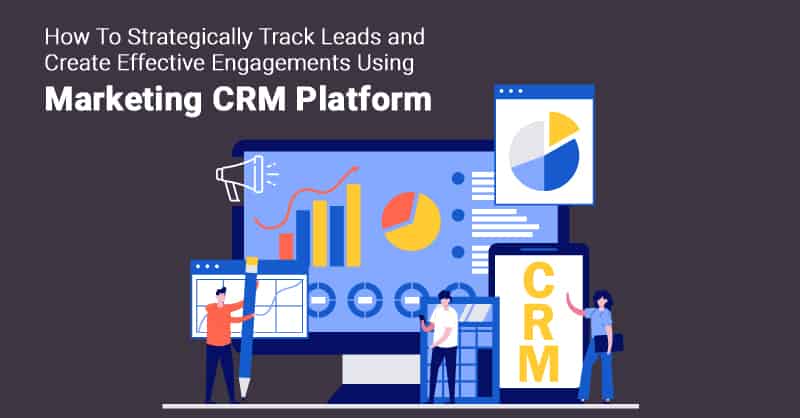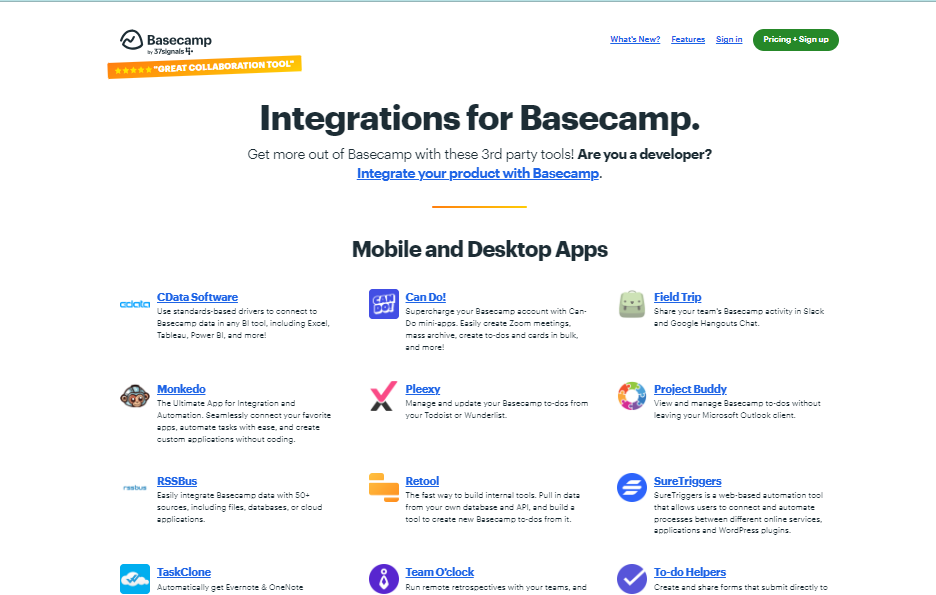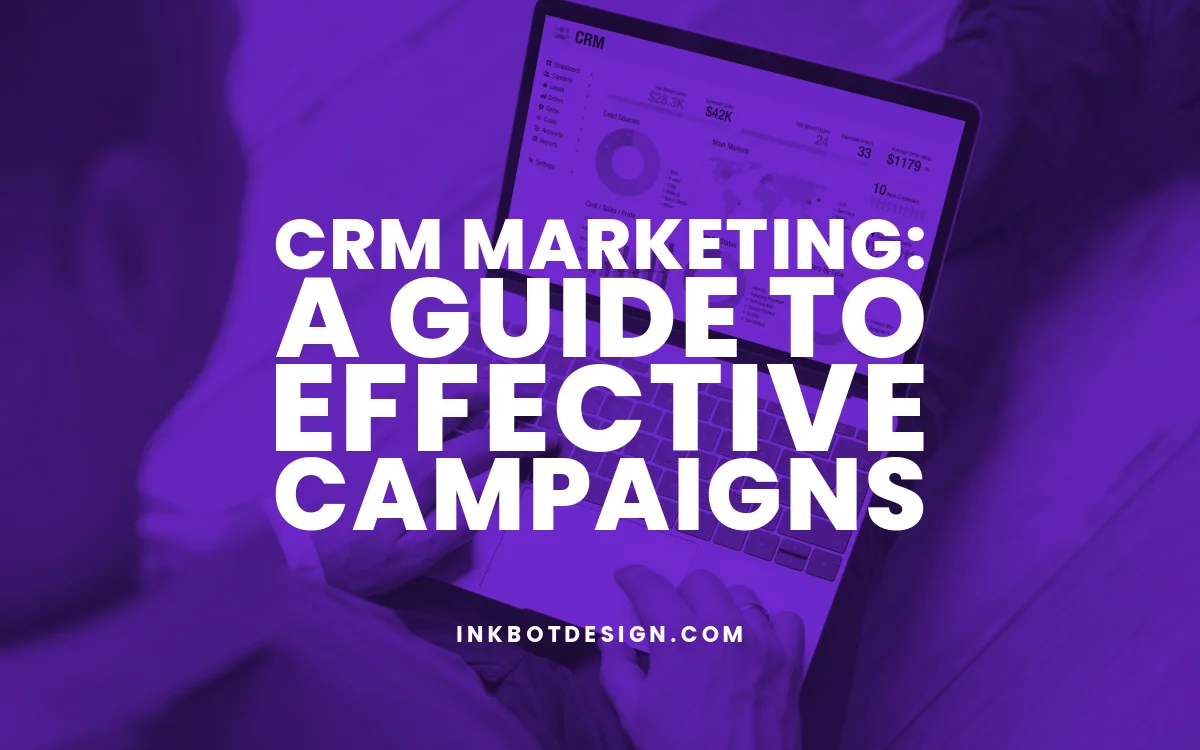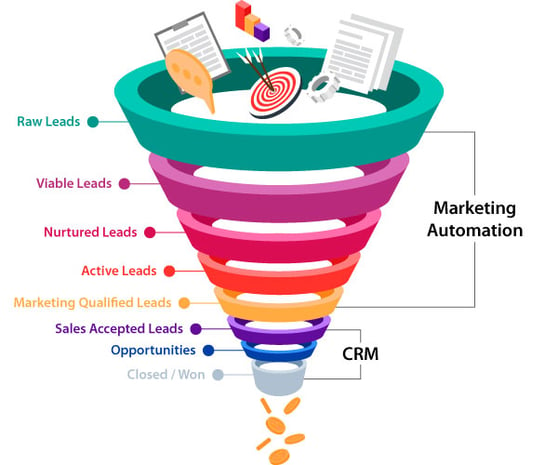Supercharge Your Business: A Comprehensive Guide to CRM Marketing Platforms

Supercharge Your Business: A Comprehensive Guide to CRM Marketing Platforms
In today’s fast-paced business world, staying ahead of the competition requires more than just a great product or service. It demands a deep understanding of your customers and the ability to engage them effectively. This is where CRM marketing platforms come into play, acting as the central nervous system of your customer relationship management efforts. They empower businesses to streamline interactions, personalize experiences, and ultimately, drive growth. This comprehensive guide will delve into the world of CRM marketing platforms, providing you with the knowledge and insights needed to choose the right platform and leverage it to its full potential.
What is a CRM Marketing Platform?
At its core, a CRM (Customer Relationship Management) marketing platform is a software solution designed to manage and analyze customer interactions and data throughout the customer lifecycle, with the goal of improving business relationships, assisting in customer retention and driving sales growth. It consolidates all customer-related information in one central location, providing a 360-degree view of each customer. This includes contact details, purchase history, communication logs, and any other relevant information. It’s not just about storing data; it’s about using that data strategically to enhance marketing efforts.
Think of it as the hub for all your customer-related activities. A CRM marketing platform usually combines features from CRM software and marketing automation tools. CRM software focuses on managing customer interactions, while marketing automation streamlines and automates marketing tasks. The integration of these two aspects is what makes CRM marketing platforms so powerful.
Key Features and Benefits of CRM Marketing Platforms
CRM marketing platforms offer a wide array of features designed to streamline marketing efforts and boost business performance. Here are some of the most important ones:
1. Contact Management
This is the foundation of any good CRM. It allows you to store and organize customer contact information, including names, email addresses, phone numbers, and physical addresses. Effective contact management ensures that you have accurate and up-to-date information, which is critical for personalized marketing campaigns.
2. Lead Management
Lead management features help you capture, track, and nurture leads throughout the sales funnel. This includes lead scoring, lead segmentation, and automated workflows to guide leads toward conversion. You can identify your most promising leads and prioritize your efforts accordingly.
3. Marketing Automation
Marketing automation tools allow you to automate repetitive marketing tasks, such as email marketing, social media posting, and lead nurturing. This frees up your marketing team’s time to focus on more strategic initiatives. Automation also helps ensure consistency in your marketing efforts.
4. Email Marketing
Email marketing is a powerful tool for engaging with customers and promoting your products or services. CRM marketing platforms often include email marketing features, allowing you to create and send targeted email campaigns, track open rates, click-through rates, and conversions.
5. Sales Force Automation (SFA)
SFA tools help sales teams manage their activities more effectively. This includes features like contact management, opportunity tracking, and sales forecasting. SFA allows your sales team to stay organized, track progress, and close deals more efficiently.
6. Reporting and Analytics
CRM marketing platforms provide detailed reports and analytics on your marketing and sales performance. This includes metrics like website traffic, lead generation, conversion rates, and revenue. These insights help you understand what’s working and what’s not, so you can make data-driven decisions.
7. Integration Capabilities
A good CRM marketing platform should integrate with other essential business tools, such as your website, e-commerce platform, and social media accounts. This allows for seamless data flow and a unified view of your customers.
Benefits of Using a CRM Marketing Platform
- Improved Customer Relationships: By providing a 360-degree view of each customer, CRM platforms enable you to understand their needs and preferences better, leading to more personalized and meaningful interactions.
- Increased Sales: CRM platforms help you identify and nurture leads, track opportunities, and close deals more efficiently, resulting in increased sales and revenue.
- Enhanced Marketing ROI: By automating marketing tasks and providing detailed analytics, CRM platforms help you optimize your marketing campaigns and improve your return on investment.
- Better Customer Retention: Personalized interactions and proactive customer service contribute to higher customer satisfaction and loyalty, leading to improved customer retention rates.
- Improved Team Collaboration: Centralized data and shared access to information facilitate better collaboration among marketing, sales, and customer service teams.
- Increased Efficiency: Automating repetitive tasks and streamlining workflows frees up your team’s time to focus on more strategic initiatives.
Choosing the Right CRM Marketing Platform for Your Business
Selecting the right CRM marketing platform is a critical decision that can significantly impact your business’s success. Here’s a step-by-step guide to help you choose the best platform for your needs:
1. Define Your Needs and Goals
Before you start evaluating platforms, take the time to define your specific needs and goals. What are you hoping to achieve with a CRM? What are your key pain points? What features are essential for your business? Consider these questions:
- What are your primary marketing objectives (e.g., lead generation, customer retention, sales growth)?
- What are the specific challenges you’re trying to solve (e.g., poor lead management, inefficient email marketing)?
- What features are critical for your business (e.g., email marketing, sales force automation, reporting)?
- What is your budget for a CRM platform?
- How many users will need access to the platform?
- What other systems will the CRM need to integrate with (e.g., website, e-commerce platform)?
2. Research and Evaluate Platforms
Once you have a clear understanding of your needs, start researching and evaluating different CRM marketing platforms. Some of the leading platforms include:
- HubSpot CRM: Known for its user-friendliness and comprehensive marketing automation features, suitable for small to mid-sized businesses.
- Salesforce: A powerful and highly customizable platform, ideal for large enterprises with complex needs.
- Zoho CRM: A cost-effective solution with a wide range of features, suitable for businesses of all sizes.
- Pipedrive: A sales-focused CRM that’s easy to use, best for sales-driven companies.
- Microsoft Dynamics 365: A comprehensive platform that integrates with other Microsoft products, suitable for businesses already using Microsoft products.
- ActiveCampaign: Strong marketing automation and email marketing capabilities, great for businesses focused on customer engagement.
Consider factors such as:
- Features: Does the platform offer the features you need?
- Ease of Use: Is the platform user-friendly and easy to navigate?
- Scalability: Can the platform grow with your business?
- Integrations: Does the platform integrate with your existing systems?
- Pricing: Is the pricing structure affordable and transparent?
- Customer Support: Does the platform offer adequate customer support?
- Reviews and Ratings: What do other users say about the platform?
3. Request Demos and Trials
Narrow down your choices to a few top contenders and request demos or free trials. This will allow you to get hands-on experience with the platforms and see how they fit your specific needs. Use the trial period to test out different features and assess the platform’s ease of use.
4. Consider Implementation and Training
Implementing a CRM marketing platform can be a complex process. Consider the implementation process, including the time and resources required. Does the platform offer adequate training and support to help your team get up to speed? Look for platforms that offer onboarding assistance, documentation, and training resources.
5. Evaluate Long-Term Costs
When evaluating pricing, consider not just the initial subscription fees but also the long-term costs, such as implementation costs, training costs, and ongoing maintenance. Factor in the potential return on investment (ROI) of the platform to determine its overall value.
6. Make Your Decision
Based on your research, demos, trials, and cost analysis, make your final decision. Choose the platform that best meets your needs, goals, and budget. Remember that the best platform is the one that you and your team will actually use.
Implementing and Using Your CRM Marketing Platform Effectively
Once you’ve chosen your CRM marketing platform, the real work begins. Effective implementation and ongoing use are crucial for maximizing its benefits. Here are some tips:
1. Data Migration and Setup
Carefully migrate your existing customer data into the platform. This includes cleaning up your data, removing duplicates, and ensuring that all information is accurate and up-to-date. Configure the platform to meet your specific needs, including setting up workflows, creating custom fields, and integrating with other systems.
2. User Training and Adoption
Provide comprehensive training to your team on how to use the platform. Encourage user adoption by emphasizing the benefits of the platform and providing ongoing support. Make sure everyone understands how to use the platform’s features effectively and how it will help them do their jobs more efficiently.
3. Segmentation and Personalization
Segment your customer data to create targeted marketing campaigns. Use the platform’s features to personalize your communications, such as email marketing and website content, based on customer preferences, behavior, and purchase history. Personalization is key to engaging customers and building strong relationships.
4. Automation and Workflows
Automate repetitive tasks and create workflows to streamline your marketing and sales processes. This can include automated email sequences, lead nurturing campaigns, and task assignments. Automation saves time, improves efficiency, and ensures consistency in your efforts.
5. Reporting and Optimization
Regularly review your platform’s reports and analytics to track your performance and identify areas for improvement. Make data-driven decisions based on your insights. Continually optimize your campaigns and processes to achieve better results.
6. Stay Updated and Leverage New Features
CRM marketing platforms are constantly evolving, with new features and updates being released regularly. Stay informed about the latest developments and leverage new features to improve your marketing efforts. Participate in webinars, read industry blogs, and attend conferences to learn about the latest trends and best practices.
Integrating CRM Marketing Platforms with Other Marketing Strategies
A CRM marketing platform is a powerful tool, but it’s most effective when integrated with other marketing strategies. Here’s how to maximize the impact of your CRM:
1. Content Marketing
Use your CRM data to create targeted content that resonates with your audience. Tailor your blog posts, ebooks, and other content based on customer interests, demographics, and behavior. Promote your content through your CRM’s email marketing features to reach the right people at the right time.
2. Social Media Marketing
Integrate your CRM with your social media accounts to track customer interactions and engage with your audience on social media. Use your CRM to identify social media influencers and build relationships with them. Run targeted social media ads based on your CRM data.
3. Search Engine Optimization (SEO)
Use your CRM data to optimize your website content and improve your search engine rankings. Identify keywords that are relevant to your target audience and incorporate them into your website content. Use your CRM to track website traffic and identify opportunities to improve your SEO strategy.
4. Paid Advertising
Integrate your CRM with your paid advertising platforms, such as Google Ads and Facebook Ads. Use your CRM data to create targeted ad campaigns and track your advertising ROI. Use your CRM to personalize your ads based on customer behavior and preferences.
5. Email Marketing
As mentioned earlier, email marketing is a core component. Leverage your CRM data to create segmented email lists and personalize your email campaigns. Automate your email marketing efforts to nurture leads and engage with customers. Track your email marketing performance and make adjustments as needed.
Future Trends in CRM Marketing Platforms
The world of CRM marketing is constantly evolving. Here are some key trends to watch:
- Artificial Intelligence (AI): AI is being increasingly integrated into CRM platforms to automate tasks, personalize customer experiences, and provide predictive analytics.
- Mobile CRM: Mobile CRM applications are becoming more sophisticated, allowing users to access and manage their customer data on the go.
- Data Privacy and Security: With increasing concerns about data privacy, CRM platforms are focusing on data security and compliance with regulations like GDPR and CCPA.
- Hyper-Personalization: CRM platforms are enabling businesses to deliver highly personalized experiences based on individual customer data and preferences.
- Integration with Emerging Technologies: CRM platforms are integrating with emerging technologies like chatbots, voice assistants, and the Internet of Things (IoT).
Conclusion: Embracing the Power of CRM Marketing Platforms
CRM marketing platforms are essential tools for businesses that want to build strong customer relationships, drive sales growth, and stay ahead of the competition. By understanding the features, benefits, and implementation strategies of these platforms, you can supercharge your business and achieve your marketing and sales goals. Remember to choose the platform that best fits your needs, integrate it with your other marketing strategies, and continuously optimize your efforts to achieve the best results. The future of business is customer-centric, and CRM marketing platforms are at the heart of this transformation.
In essence, a CRM marketing platform is more than just software; it’s a strategic asset that empowers businesses to thrive in today’s competitive landscape. By embracing the power of CRM, you can build lasting customer relationships and achieve sustainable growth.




